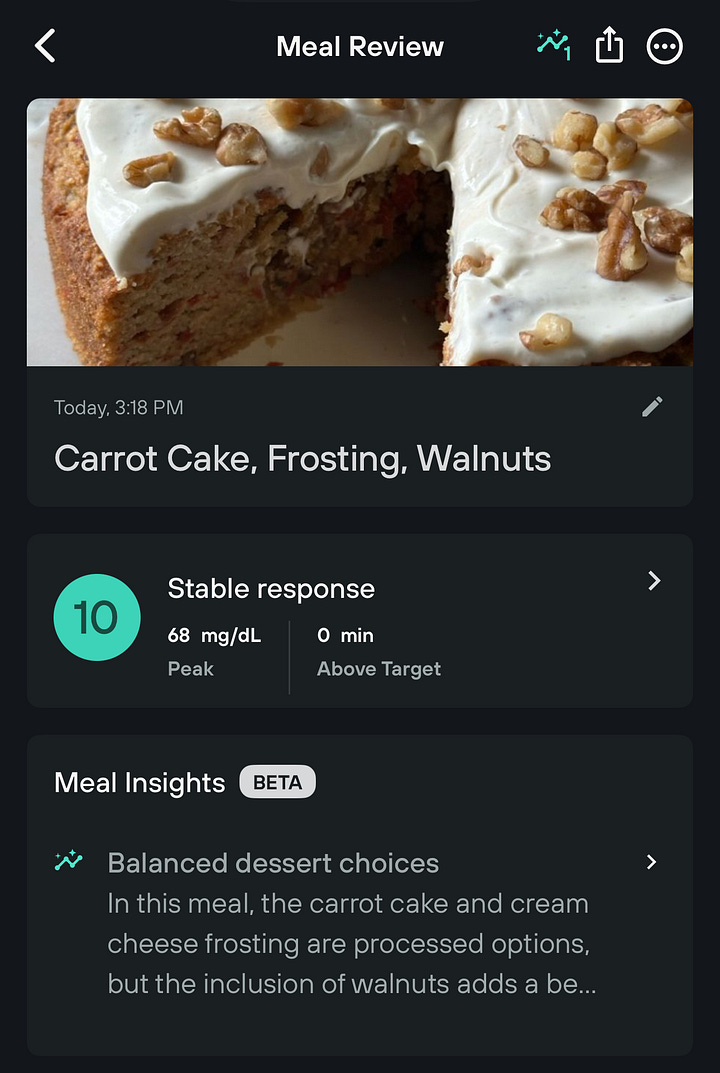During Dr. B's medical training, we made a home in a charming 1906 craftsman in South Pasadena, California, with a garden bursting with avocados, Meyer lemons, oranges, and the most magnificent hydrangeas, gardenias, and roses. All 3 of our daughters were born during Dr. B’s residency and fellowship, and those blue, pink, and purple blooms became a birthday tradition. I used pieces of hydrangea and roses to adorn the carrot cakes I made for our three daughters each year.


The Joy of Cooking cookbook (a wedding gift circa 1994) became a diary of our family's nutritional journey. Flip to the Carrot Oil Cake page, and you'll find a timeline of transformation written in the margins—vanilla stained notes and flour dusted fingerprints telling the story of this recipe's evolution.
The earliest modifications were simple: "almond flour? coconut flour?" As my understanding of nutrition grew, so did my recipe adjustments. You can see my scribbles in the cookbook as I made modifications to the recipe over the years so that it was at first refined sugar free, then grain free, then seed oil free, and finally the blood sugar friendly version that I am sharing with you today.
What began as a traditional cake gradually transformed into something that honored both celebration and health. Each substitution represented our growing awareness of food's impact on metabolic health.
The blood sugar friendly version I'm sharing today still carries the spirit of those birthday gatherings—where three little girls blew out candles on flower crowned cakes—but now offers nourishment alongside nostalgia.


This gluten-free, naturally sweetened carrot cake delivers all the flavor of traditional carrot cake while using more nutrient-dense ingredients. It's perfect for special occasions, a spring brunch, an Easter dessert, or a wholesome treat!
This carrot cake isn't just delicious—it's packed with nutrients that support your metabolic health. Take a look at the impressive nutritional profile of each ingredient:
Almond Flour
Protein: Provides plant-based protein for muscle maintenance and satiety
Vitamin E: A powerful antioxidant that protects cells from oxidative damage
Magnesium: Supports over 300 enzymatic reactions, including blood sugar regulation
Monounsaturated Fats: Heart-healthy fats that support balanced cholesterol levels
Low Glycemic Impact: Minimal effect on blood sugar compared to traditional flour
Coconut Flour
Fiber: Exceptionally high in fiber (about 10g per ¼ cup), supporting digestive health and blood sugar stability
MCTs (Medium-Chain Triglycerides): Fats that are readily used for energy rather than stored
Iron: Essential for oxygen transport and energy production
Protein: Contains more protein than most grain-based flours
Cinnamon
Anti-inflammatory Properties: Contains compounds that fight inflammation
Blood Sugar Regulation: Helps improve insulin sensitivity
Antioxidants: Rich in polyphenols that protect cells from oxidative stress
Antimicrobial Benefits: Natural compounds that support immune function
Eggs
Complete Protein: Contains all essential amino acids needed for tissue repair
Choline: Supports brain health and neurotransmitter production
Lutein and Zeaxanthin: Antioxidants that support eye health
B Vitamins: Essential for energy metabolism and nervous system function
Vitamin D: Important for calcium absorption and immune function
Extra Virgin Olive Oil
Oleic Acid: Monounsaturated fat that supports heart health
Polyphenols: Powerful antioxidants with anti-inflammatory effects
Vitamin K: Important for bone health and blood clotting
Vitamin E: Protects cells from oxidative damage
Walnuts
Omega-3 Fatty Acids: Anti-inflammatory fats that support brain and heart health
Antioxidants: Higher antioxidant activity than most other nuts
Melatonin: Natural compound that supports sleep quality
Manganese: Essential for bone formation and blood sugar regulation
Copper: Important for energy production and iron metabolism
Carrots
Beta-Carotene: Converts to vitamin A in the body, supporting vision and immune function
Fiber: Supports digestive health and promotes beneficial gut bacteria
Potassium: Essential for heart function and blood pressure regulation
Antioxidants: Including alpha-carotene and lutein, which support cellular health
Vitamin K1: Important for bone health and proper blood clotting
Crème Fraîche
Beneficial Fats: Contains both saturated and unsaturated fats that support hormone production
Calcium: Essential for bone health and muscle function
Probiotics: Contains beneficial bacteria that support gut health (when unpasteurized)
Vitamin B12: Important for nerve function and red blood cell formation
Choosing Metabolic Health
This recipe represents a metabolic upgrade from traditional carrot cake by:
Replacing refined flour with nutrient-dense, lower-glycemic alternatives
Using natural sweeteners in moderate amounts
Incorporating healthy fats that slow sugar absorption and provide satiety
Nutrient dense whole food ingredients that provide vitamins and minerals often missing in conventional desserts
Enjoying this carrot cake means satisfying your sweet tooth while actually nourishing your body with ingredients that support stable blood sugar, reduce inflammation, and contribute to overall metabolic health.


healthy carrot cake with frosting
By Beth Bollinger of Nest Wellness
Gluten free, grain free, refined sugar free with dairy free options
Makes: One 8-inch round cake (double the cake and frosting recipes to make a 2 layer cake)
Serves 10
Prep Time: 20 minutes
Cook Time: 40-45 minutes
Total Time: 1 hour
Equipment
Food processor or blender (for non-dairy frosting)
Box grater or food processor (for shredding carrots)
Keep reading with a 7-day free trial
Subscribe to Nest Wellness by Beth Bollinger to keep reading this post and get 7 days of free access to the full post archives.











